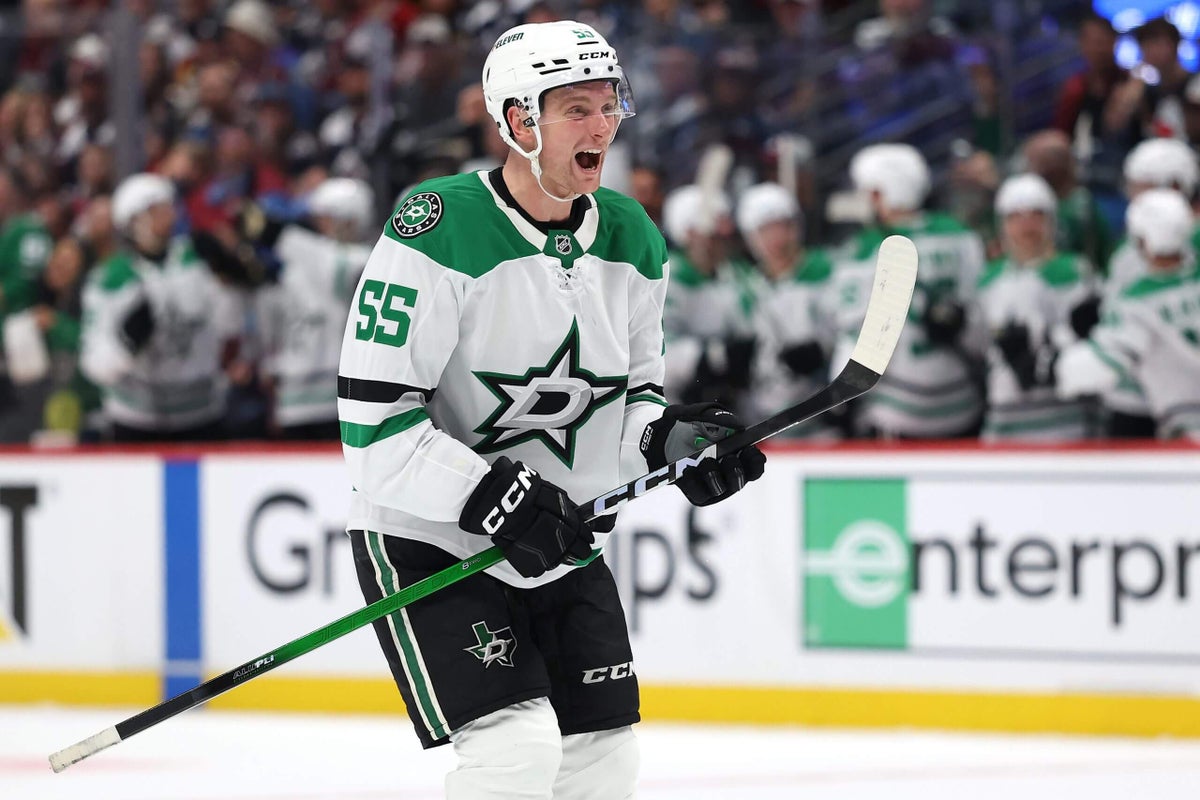

Thomas Harley was a top-pairing defenseman when Miro Heiskanen was healthy, and he was a top-pairing defenseman when Miro Heiskanen was hurt. The minutes were hard before Heiskanen’s knee injury, they were hard after. The competition was fierce before, it was fierce after. The expectations were high before, they were high after. Nothing comes easy in the NHL. Never does.
Advertisement
But something fundamentally changed with Heiskanen out: Heiskanen was out.
“It’s a little different because you don’t have a world-class defender by your side to help you with it all,” Harley said.
It’s a bit hyperbolic to say the Stars could have fallen to pieces when Heiskanen was injured by a Mark Stone hit in Las Vegas on Jan. 28. Dallas’ entire run as a contender in recent years has been predicated on its depth, after all. But it’s not hyperbolic to say that if there’s one irreplaceable player in the Stars lineup, one true linchpin, it’s Heiskanen. And you don’t even have to look outside the Central Division to find an example of what happens when a team loses its unquestioned best player, the guy around whom the whole team and team concept are built.
Just look at what happened in Minnesota this season. With Kirill Kaprizov, who was playing like a Hart Trophy candidate, the Wild raced out to a 20-6-4 start. After he was hurt, they went 22-23-3, nearly falling out of the playoff picture entirely. He returned late in the season, and the Wild won three of their last four and are now giving the Golden Knights all they can handle in the first round.
“At one point they were first in the league there, and (then) stumbled into the playoffs,” Stars coach Pete DeBoer said. “It can swing your season that dramatically when you lose a key guy. And that’s a forward. I think defensemen are even more impactful.”
Heiskanen is that player for the Stars. He runs the power play. He draws the toughest defensive assignments. He logs the most minutes. He chips in on the penalty kill. And more than anything, he bestows a sense of calm on the entire Dallas team when he’s back there, one of the NHL’s ultimate safety nets. When he was hurt — and it looked at the time that his season was certainly lost — it could have sent Dallas into a panic, into a tailspin, into the wild-card race.
But with Heiskanen, the Stars were 32-17-1, a .650 points percentage. Without him, the Stars are 20-10-5, a .643 points percentage, including a 2-1 series lead over the favored Colorado Avalanche.
And Harley might be the biggest reason why.
“We definitely don’t have the record we have (in) the second half (without him),” DeBoer said. “I don’t know what would have happened if he hadn’t stepped into the role he did coming out of the 4 Nations, and by the way he did it.”
Let’s start with the numbers. Nearly all of Harley’s analytics — expected-goals share, goals-against per 60, scoring chances against per 60, high-danger chances against per 60 — were better when Heiskanen was healthy. That’s no surprise. When he was paired with Heiskanen, he had one of the league’s best defensive defensemen by his side. When he wasn’t paired with Heiskanen, he was drawing easier assignments in less taxing minutes.
Advertisement
But the Stars outscored opponents 47-28 with Harley on the ice while Heiskanen was healthy. They outscored opponents 31-21 with Harley on the ice while Heiskanen was out. That’s a remarkably similar goals share. Harley took on an incredible burden and the Stars barely even stumbled. Harley’s power-play time nearly doubled to 3:36 per game, tops on the team and second among all NHL defensemen in that time. Harley was the power play. No other Stars defenseman averaged more than 54 seconds per game. And that power play improved from a meager 18.8 percent to a rip-roaring 27.1 percent, sixth in the league, once he took over.
The quality of offensive players Harley faced increased significantly, and the quality of defenders he faced nearly doubled, per Hockey Stat Cards’ usage ratings. He went from averaging 22:27 of ice time per game, 44th in the league, to 24:53 per game, ninth in the league.
And perhaps most importantly, Harley produced. In 48 games before the Heiskanen injury, Harley had a modest seven goals and 16 assists, averaging less than half a point per game. In the 30 games after the injury, he had nine goals and 18 assists, for a 0.9-points per game average — the same as Columbus’ Zach Werenski and higher than Montreal’s Lane Hutson or Tampa Bay’s Victor Hedman.
As much as anything else, it’s why the Stars are where they are, holding home-ice advantage in the first round. And it’s why Harley will be popping up on Norris Trophy ballots.
“That’s cool,” he said with a shrug. “It’s definitely not what you go into the season looking for, but it’s a nice accolade. At the end of the day, it really doesn’t matter if you don’t get it done in the playoffs.”
Harley didn’t exactly get it done in the playoffs last spring. After bursting onto the scene in the 2023 playoffs with nine points in 19 games with just six regular-season games under his belt, Harley had a breakout rookie season, with 15 goals and 32 assists. But he had no goals and just four assists in 19 playoff games as the Stars reached the Western Conference final.
Advertisement
A more productive postseason was a priority for Harley, and he’s off to a strong start with a goal and two assists through three games against Colorado.
“I don’t know if I had something to prove,” he said. “I am aware of my role on this team and what I need to do to be successful and for this team to win games. So there is pressure on myself to perform.”
The 4 Nations Face-Off was a turning point — a launching pad, even — for Harley. The tournament came just a couple weeks after Heiskanen’s injury, and Harley was a late injury replacement for Shea Theodore, joining Team Canada on “standby” mid-tourney. Harley ended up playing in two 4 Nations games — both against the United States. He averaged nearly 20 minutes, set up Nathan MacKinnon’s opening goal in the pressure-cooker championship game, and earned the admiration of some very important people in Hockey Canada.
The sense from Team Canada management was that Harley wasn’t overwhelmed by the moment. His low-key demeanor and even-keel mindset made him well-suited for that kind of spotlight. Harley’s skill set always has been evident, but management didn’t think too many players could have handled that difficult spot as well as Harley did.
It certainly raised Harley’s hopes of playing in Milano-Cortina next February at the Olympics. But it also served as a confidence-boosting springboard for the rest of the Stars’ season and postseason.
“It was the best thing that ever happened to him and to our team,” DeBoer said. “I remember going in (to 4 Nations) and he was on the bubble, and he actually went into the 4 Nations break, I thought he was just playing OK. He looked a little worn down. So I thought maybe it’s for the best (when he was left off the roster). He’ll get a break here and take a couple weeks off. And then when he got called in, and the way he performed, it was almost like a switch flipped within him. ‘Hey, I can play at this level with these guys and be effective.’ When he came back, I mean, he was at a different level. His game went to a whole different level. It was like the league really slowed down for him and he had a great confidence to his game.”
That low-stress personality is obvious when you talk with Harley. He’s quiet, unassuming, and very unimpressed with himself and his situation. Don’t get him wrong — he understands the job, the spot the Stars’ defense is in, and how good he can be.
Advertisement
He just doesn’t think any of it’s that big of a deal.
“It’s continuing what I did last year and the start of the year, just in more minutes,” he said. “More of the breakouts, the puck-moving has fallen to me. Miro obviously was very good at those, and now that he’s out, we have one less puck-mover in the lineup. So when I’m on the ice, I take most of the responsibility to get the puck out of our zone and moving, as well as in the neutral zone. Same thing as always, just more of it.”
Heiskanen has been inching closer to a return, perhaps earlier than anyone expected. He started skating with the team at the start of the series, and he was getting a few spins on the power play during the morning skate before Game 3. With an extra day off before Saturday’s Game 4, maybe he could even be back this weekend.
Getting a “world-class defender,” in Harley’s words, would be a huge boost for the Stars against the dynamic and dangerous Avalanche.
Especially now that they’d have two of them.
“Honestly, with Miro out, if (Harley) doesn’t fill that hole with the level of play he did,” DeBoer said, “we might not be sitting here.”
—The Athletic’s Pierre LeBrun contributed to this report.
(Photo: Matthew Stockman / Getty Images)
This news was originally published on this post .




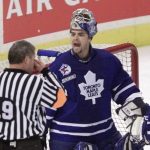
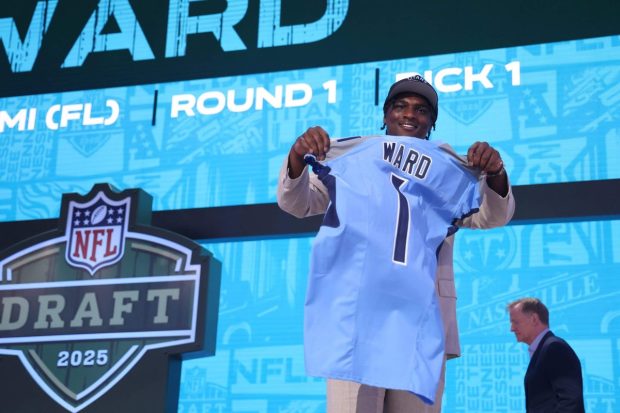
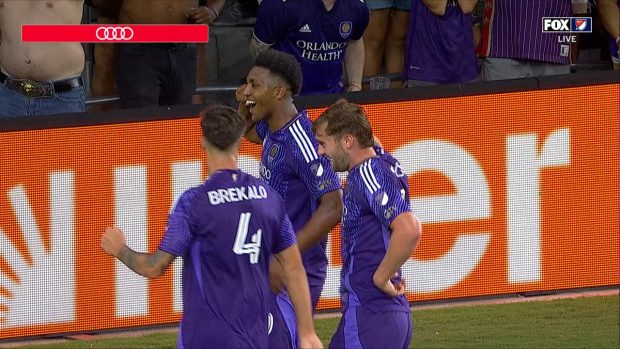
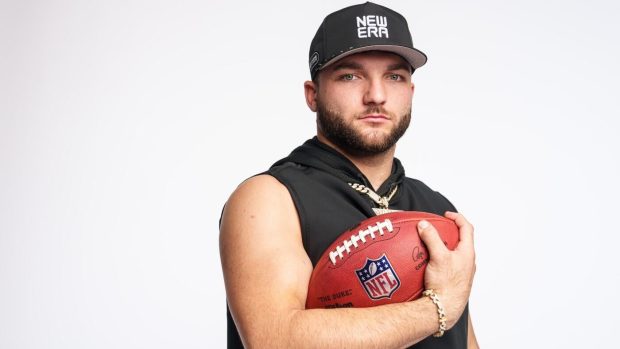
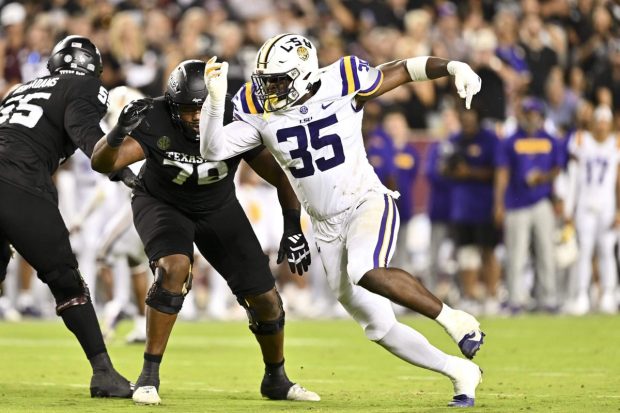
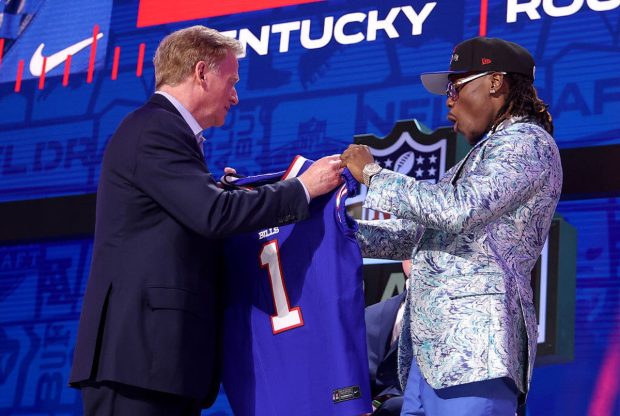
Be the first to leave a comment